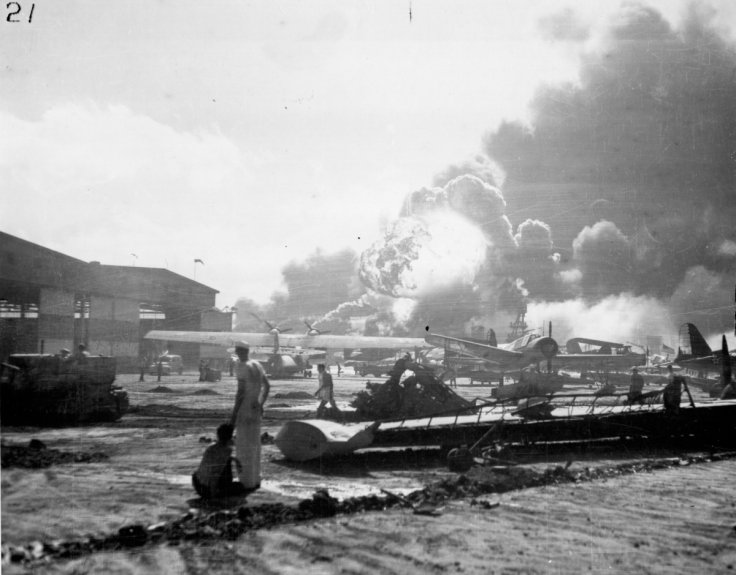
Japan Prime Minister Shinzo Abe's visit to Pearl Harbor last December might have subdued the rage over the Asian country's World War II diplomatic folly 76 years ago but still the day goes in history as a major mistake that Japan could have averted.
Pearl harbor, the Pacific US Naval base in Hawaii was attacked by Japan on December 7, 1941 killing thousands of unprepared US sailors without proper announcement of war that raged the then neutral America to plunge into World War Two along side the Allies.
Bringing to memory, the events of the first week of December in 1941 remain vivid when Japanese ambassador who was entrusted with the task of war declaration to be handed over to Washington failed to do so on time. The Pearl Harbor attack on December 7 had preceded the declaration and the US blamed Japan for unilateral attack, an allegation that many Japan historians apologetically distance themselves from admitting.
When Japan attacked Pearl Harbor, unprepared 2,400 American non-combatant soldiers were killed and then US President Franklin D. Roosevelt described it as the day "which will live in infamy." Last year's Abe visit to Pearl Harbor in December was made out to cement the animosity though not many people were conviced.


From the Japanese side, the brain behind Admiral Yamamoto had planned the attack within 30 minutes after the hand-over of its message of cancellation of negotiations in Washington DC. But transcribing the 5000-word notification took too long for Kichisaburo Nomura, the Japanese ambassador, that he failed to deliver it on time and finally presented it more than an hour after the attack.
While Japan termed the final part of the message as declaration of war, US officials understood it as termination of talks and not a declaration of war. It merely read: "The Japanese Government regrets to have to notify hereby the American Government that in view of the attitude of the American Government it cannot but consider that it is impossible to reach an agreement through further negotiations."
Though Japanese historians maintained for long that Japan was not at fault as the ambassador unduly delayed the delivery of the diplomatic message, Takeo Iguchi, a professor at International Christian University in Tokyo, discovered documents in 1999 which pointed out the conflicting view as per a December 7 entry in the war diary.
"The diary shows that the army and navy did not want to give any proper declaration of war, or indeed prior notice even of the termination of negotiations ... and they clearly prevailed," said Iguchi.
Otherwise, the Japanese attack took place in two waves and 2,403 Americans died with 1,178 wounded. In all, 18 ships were sunk or run aground, including five battleships, according to war records.








